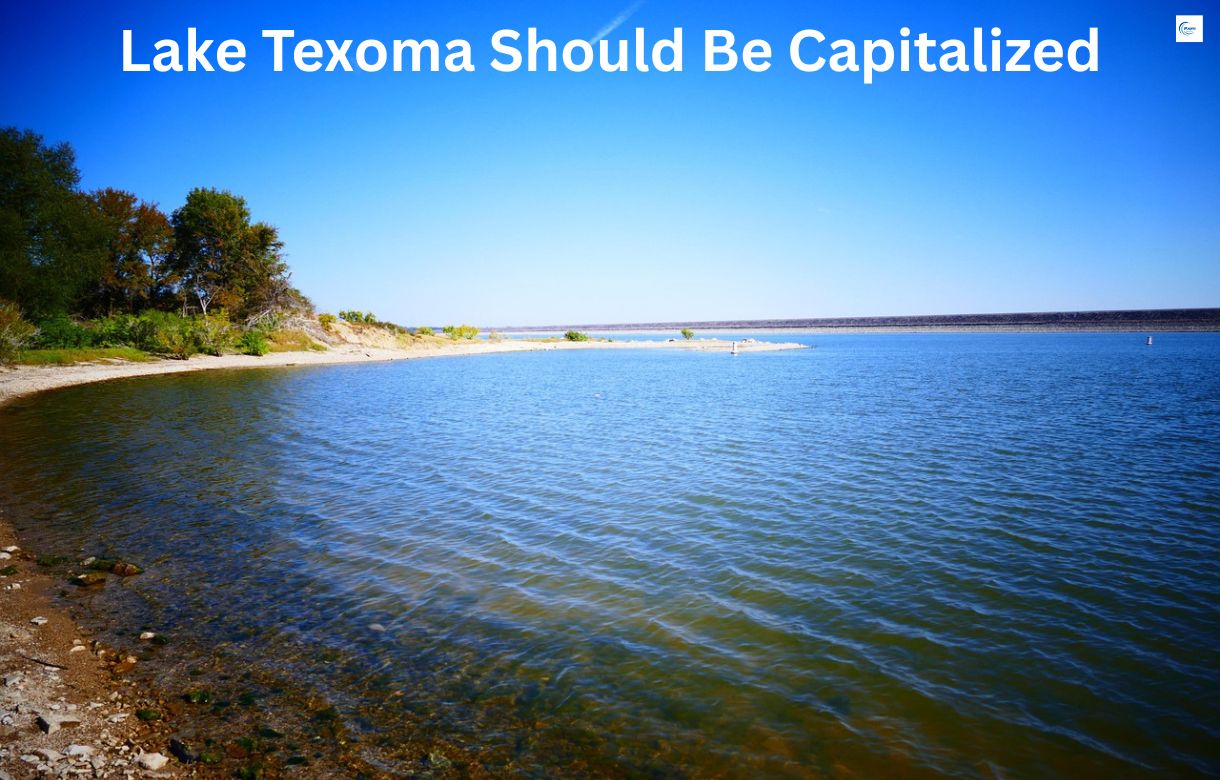The Curious Case of Capitalization
Ever wonder why some names just look wrong when they’re in lowercase? Imagine reading “lake texoma” on a billboard. It doesn’t sit right, does it? That’s because “Lake Texoma” isn’t just a random collection of words—it’s a proper noun, a destination, and a symbol of pride for many. And capitalizing it isn’t just grammar—it’s respect.
Why Names Matter More Than You Think
Names carry stories, identity, and meaning. When we lowercase them, we strip away part of their significance. For Lake Texoma, that means dulling the shine of a place that deserves to stand tall, both in print and in memory.
📚 Understanding Capitalization Rules
The Basics of Proper Nouns
In English, proper nouns always get capitalized. These include names of people, places, organizations, and specific things. “Lake Texoma” falls squarely in that category—it’s the official name of a well-known reservoir on the Texas–Oklahoma border.
When Common Becomes Proper: A Quick Grammar Dive
The word “lake” is a common noun when used generally (e.g., “Let’s visit the lake”), but it transforms into part of a proper noun when tied to a specific name (e.g., “Lake Tahoe,” “Lake Superior,” and of course, “Lake Texoma”).
🏞️ What Makes “Lake Texoma” Special
Geographical Importance
Spanning over 89,000 acres, Lake Texoma is one of the largest reservoirs in the U.S., attracting millions of visitors annually. That alone earns it name recognition that deserves to be respected.
Historical Relevance
Lake Texoma was created in the 1940s with the construction of Denison Dam. Since then, it has played a vital role in flood control, hydroelectric power, and recreation across two states.
Cultural Identity and Local Pride
To locals, it’s not “just a lake.” It’s where generations have fished, boated, camped, and built memories. Misnaming it—especially by lowercasing—feels dismissive to the culture it supports.
🚫 The Impact of Incorrect Capitalization
Perception and Professionalism
Imagine reading a brochure that says, “visit lake texoma.” It screams unprofessional. It gives off the vibe that the writer doesn’t know or care about the place they’re writing about.
SEO and Digital Credibility
Google might not penalize lowercase directly, but trust us—users do. Misspellings and incorrect capitalization reduce trust, leading to lower click-through rates, less engagement, and less authority in the digital space.
🗺️ Real-World Examples of Place Name Capitalization
Comparing “Lake Texoma” to Other U.S. Lakes
We never say “lake michigan” or “lake tahoe.” So why allow “lake texoma” to slide? Consistency matters, especially in tourism, journalism, and publishing.
What Travel Writers Get Right (And Wrong)
Top travel blogs and official tourism boards always capitalize Lake Texoma. But user-generated content or rushed posts often don’t—and it shows.
✨ Why “Lake Texoma” Deserves the Capital Letters
It’s Not Just a Lake, It’s a Landmark
Lake Texoma is a destination with history, personality, and beauty. It’s mentioned in songs, featured in travel documentaries, and bookmarked by thousands of wanderlusters.
A Brand, a Destination, and a Legacy
Like “The Grand Canyon” or “Yellowstone National Park,” the name “Lake Texoma” carries branding power. Brands need clarity, consistency, and respect—starting with a capital L and T.
Read Also: Through the Annapurna Circuit Trek: A Personal Tale
💼 The Marketing Power Behind Proper Naming
Boosting Search Engine Visibility
Capitalization doesn’t just look good—it helps with searchability. Users searching “Lake Texoma fishing guides” will connect better with content that mirrors their search, not something that says “lake texoma.”
Appealing to Tourists and Influencers
First impressions matter. If your blog, guide, or reel captions say “lake texoma,” viewers may perceive it as amateurish. Capital letters elevate credibility instantly.
📖 How Travel and Fishing Guides Set the Tone
Industry Standards and Expectations
The tourism industry lives by polished presentation. Capitalization is one of the simplest—and most powerful—ways to show care in your content.
Influencing Reader Trust and Engagement
Trust isn’t just about accuracy—it’s also about appearance. Readers are more likely to believe and share well-written, properly formatted content.
🧠 Psychological Effects of Capitalization
Authority, Importance, and Visual Weight
Capitalized words have more visual presence. “Lake Texoma” commands attention. It says, “Hey, I matter.” And rightly so.
Reader Interpretation and Emotional Response
Ever notice how names in lowercase feel casual or careless? That’s not what a major lake deserves. Let’s give it the recognition it’s earned.
🔠 Language Evolution and Modern Trends
Digital Age Grammar
Texting has made lowercase cool—but not in professional writing. Capitalization still holds its place in branding, publications, and education.
Why Style Guides Still Matter
AP Style, Chicago Manual of Style, and every other reputable guide agree—proper nouns must be capitalized. Period.
🔤 Fighting the Lowercase Trend
The Rise of Casual Text Culture
We’re not saying you need to capitalize everything (we see you, e.e. cummings). But places? They’ve earned their uppercase spot.
Why Formality Still Has a Place
Even in the TikTok era, structure, and style still build credibility. Proper capitalization is a low-effort, high-reward practice.
✍️ A Call to Writers, Editors, and Travelers
The Role of Storytelling
Storytelling isn’t just about the plot—it’s about the details. Getting the name right shows you’ve done your homework and you care.
Keeping Regional Names Alive and Respected
Local pride begins with proper recognition. And sometimes, that starts with a capital letter.
🔍 What Google Thinks About Capitalization
SEO Algorithms and Capital Letters
While Google isn’t case-sensitive, CTR (click-through rate) is. A correctly capitalized title is more likely to be clicked and shared.
Ranking Factors You Didn’t Know About
Capitalized titles tend to perform better in user trust metrics—something Google values deeply in content evaluation.
❌ Frequently Miswritten Place Names
The Common Offenders
- lake texoma
- lake powell
- lake havasu
- lake lanier
All guilty. And all worth correcting.
Why Lake Texoma Deserves Better
If you love it, name it right. That’s the hidden rule.
✅ Conclusion
Grammar with Purpose
This isn’t just about a rule—it’s about respect. When we capitalize “Lake Texoma,” we honor its history, community, and significance.
Capitalization Is Respect
So next time you write it, type it like you mean it. Because Lake Texoma isn’t lowercase—and never should be.
❓FAQs
Q1: Does capitalization affect SEO?
Yes, indirectly. Proper capitalization improves readability and user trust, which can boost engagement—key for SEO.
Q2: Is it grammatically wrong to write “lake texoma”?
Technically, yes. As a proper noun, it should always be capitalized.
Q3: Why do some blogs write place names in lowercase?
It’s usually due to laziness, ignorance, or an attempt at stylistic minimalism—which doesn’t work in professional writing.
Q4: What other names follow this capitalization rule?
Any official location: Lake Michigan, Mount Everest, Grand Canyon, etc.
Q5: Is it okay to capitalize for emphasis only?
While caps can be used stylistically for emphasis, proper nouns should always be capitalized—no exceptions.



